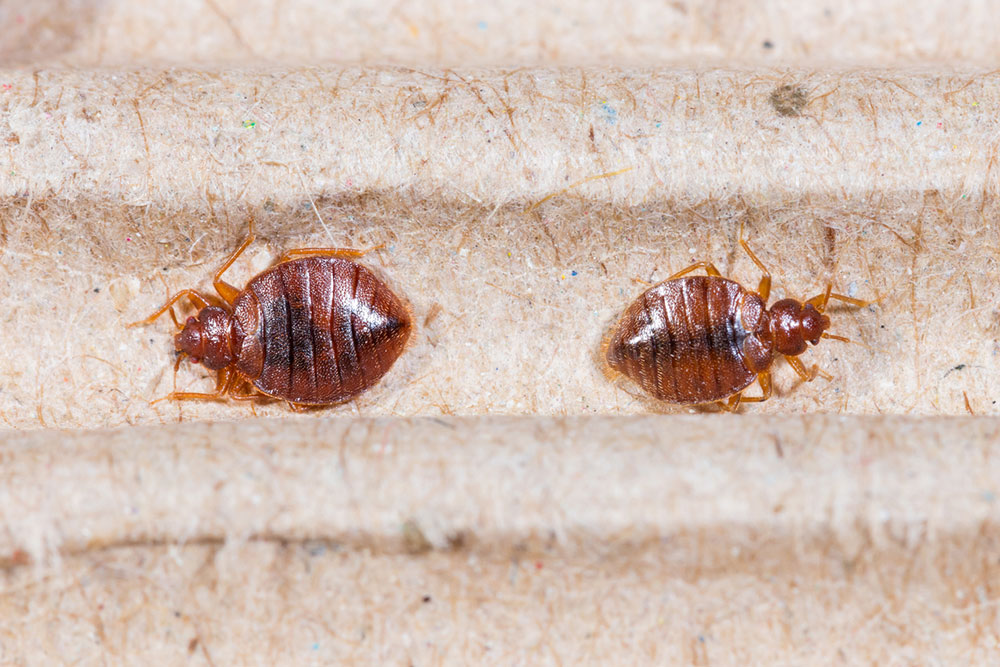Bed Bug Bites – Symptoms and Treatment Options
Bed bugs are troublesome little pests that sneak into your bed, furniture, and furnishings. They bite you when you are sleeping. These small, oval-shaped insects have a reddish-brown color. They are approximately 1-7 millimeters long and do not have wings.
Bed bugs feed on humans. They are most active at night where they bite their victims while they are asleep. If you see any signs of bed bugs in your house, you must hire a pest control service to stop these pests from feeding on you.
What do bed bug bites look like?
A lot of people do not experience any symptoms of a bed bug bite as their body does not react to it.

Those who experience symptoms are most likely to exhibit the following signs of a bed bug bite:
- A raised, itchy bump with a dark red center and swollen surrounding area
- Bites grouped together in a small area
- Small red bumps in a line or zigzag pattern
- Development of hives or blisters at the site
- Areas of skin with flat or raised patches that may or may not be inflamed
- White or clear skin, shed by nymphs as they mature
Bed bugs can attack any area of the body. However, bug bites mostly occur in exposed areas such as the arms, legs, and face.
Some common symptoms and signs of bed bugs bite
Bed bug bites do not cause any symptoms instantly. Sometimes, it may take a few days for any sign to appear.
The most common sign of bed bug bites is that the bite site is quite itchy. It may also cause a burning and tingling sensation on the skin for a few days. If you scratch the area, it may result in a mild infection, causing bleeding and swelling.
Before bed bugs bite into your skin, they excrete a small amount of anesthesia into the body, which is why a person doesn’t feel any discomfort while these pests feed on you.
While this is relatively rare, some people exhibit severe reaction and symptoms due to bed bug bites. These symptoms include:
- Fever
- Nausea
- Difficulty in breathing
- Painful blisters
- Swollen tongue
- Irregular heartbeat
In case you experience any of these symptoms, you must seek medical help as soon as possible.
How to detect the presence of bed bugs?
If you experience any signs of bed bugs bites, you must look into the matter immediately.
Check if you can find any rust-colored fecal stains, shed skin or egg cases in the corners of the bed. Sometimes, you may be able to smell a lingering sweet and musty odor. You should also check in hidden areas such as under the mattress, behind the wallpaper, inside the couches, behind the wall frames, and so on. If you find any signs of bed bugs, call a good pest control company for immediate assistance.
Treating bed bug bites
There aren’t many treatment options for bed bug bites. The first line of treatment in all cases involves thoroughly cleaning the site with mild soap and water. If the bite causes a lot of itching, you can use topical, over-the-counter hydrocortisone creams for instant relief. These creams are readily available online as well as at your nearest medical store.
You can also opt for anti-itch creams and oral antihistamines to get relief from the symptoms of bed bug bites.
Mostly, all bed bug bites heal on their own within a week or two. However, if the wound persists or causes severe inflammation, swelling or itching, it is best to consult a medical expert.
Sometimes, bed bug bites can trigger an adverse allergic reaction. In case that happens, one can opt for the following measures:
- Antihistamine to control the production of histamines in the body
- An injectable corticosteroid
- Epinephrine medication
If a secondary bacterial infection occurs, antibiotics may be prescribed by your doctor to treat the condition. Using an antiseptic cream or lotion can also help.
Some home remedies for treating bed bug bites
To get relief from the annoying signs of bed bug bites, you can use a cold compress. It can help alleviate excessive itching, which may cause scarring if it is left untreated.
You can also take an oatmeal bath or prepare a paste from baking soda and water to get instant relief from swelling and itching.
Effective home remedies include taking over-the-counter medicines such as antihistamines to combat the symptoms.
If you see any signs of bed bugs in your house, call a reliable pest control company to get your home treated as soon as possible. Getting rid of these pesky pests by yourself is difficult and may only prolong the infestation, which can be dangerous.
These bed bugs can stay hidden for several months altogether. Therefore, getting a professional treatment will ensure that your house is free from these blood-sucking pests.

